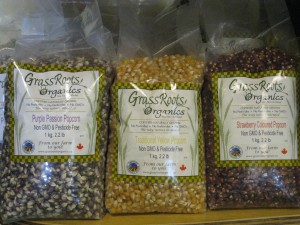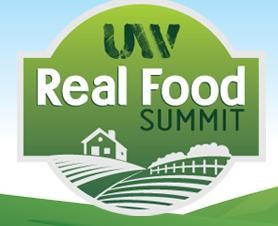It is a disappointment that California’s Prop 37 didn’t go through last month. If the ‘Yes’ side had won, the labeling of genetically modified foods in the U.S.’s most populous state would have become mandatory.
Imagine how this would have changed the food game.
Manufacturers would be required to come clean about the ingredients they put in their products. Consumers would have the power to make an informed decision about what they buy. We would, all of a sudden, have a choice – either eat GM foods or avoid them.
Someone, please, tell me when modern America abandoned its capitalist foundations of consumer choice and good ol’competition? China is more forthright on this subject to its citizens.
But it’s not all doom and gloom.
While the ‘yes’ side lost, it has got people talking. It has raised awareness of not only the health risks of consuming GM foods, but also the very un-American lack of choice in American supermarkets.
In Canada, with the exception of a few street protests in Montreal in the late 1990s, GM labeling has been a non-issue. But times are changing.
Canadians are invited to support a public members bill in support of the mandatory labeling of GM foods by signing this online petition.
While we wait for this to go through and make the world a brighter, shinier place, feast your eyes on these two pie charts of who funded the competing sides of the California vote.
I’ve been waiting for this! Jeffery Smith‘s new documentary film Genetic Roulette – The gamble of Our Lives is now out and available on DVD.
Pass it on!
Here’s the trailer:
(If trailer doesn’t load, refresh screen. It’s not displaying immediately for some reason.)
Jeffrey Smith, Executive Director of the Institute for Responsible Technology and author of Seeds of Deception, will be speaking about the latest on GMOs in a FREE ONLINE presentation during the Real Food Summit on July 9th.
The Real Food Summit is a 10-day online conference, sponsored by Underground Wellness, consisting of 27 presentations from real food experts including farmers, doctors, nutritionists, researchers, authors, and bloggers. Some of the experts include: Jeffrey Smith, Joel Salatin (Food Inc.), Chris Kresser, Paul Chek, Mark McAfee, Chris Masterjohn, and more.
I don’t have much more info than this, but it’s free and online, and I know I want to hear Jeffrey Smith.
A film by Deborah Koons Garcia, 2004 (Lily Films)
5 years old but still relevant.
I just saw The Future of Food (2004), a documentary film by Deborah Koons Garcia. This is a noteworthy film from the early days of GMO awareness in the United States. It explores the quiet introduction of GM (genetically modified) foods into our food system. Focusing on the story of BT corn, canola and soy, this interesting little film explores on the plight of the small family farmer vs the likes of Monsanto Inc. We meet Percy Schmeiser, of Saskatchewan, and Rodney Nelson, of North Dakota, two farmers who had the audacity of having Monsanto patented GM seeds blow onto their fields. Their stories are shocking and reveal the pervasiveness of Monsanto’s tentacled reach into the FDA, government policy and legal system.
If you haven’t seen it, definitely worth a watch
Walmart goes organic. This has been so in the States for a few years now and in Canada for about one year. The articles are out there, but what does it mean to the organic movement?
This was brought up at the Canadian Organic Growers conference closing panel discussion this past weekend.
You might be forgiven if your first reaction to Walmart and organic is one of cynicism. But step back for a moment and consider the following.
If the organic movement is entering the mainstream, it will reach more people, some of whom may never have eaten an organic anything before.
This could be a first step for many new eaters.
It also means more fields will be devoted to chemical-free farming, and more square kilometres of our country’s soil will be able to heal.
Will this change the organic movement? Only time will tell. It may well weaken the movement. After all, Walmart’s reputation of low-balling businesses out of business is unlikely to change. Could this then put organic farms out of business?
I say that if we want to heal out systemically ailing (and failing) food supply chain, we need to start somewhere. I’m choosing to see this as a sign of the organic movement’s success.
The new agriculture is growing ecologically, socially and financially. If organics goes mainstream, really mainstream, and therefore becomes more affordable (and attracts even more followers), then perhaps the hard(er) core grassroots folks among us could then turn our attention to the embattled fight against GMOs, which our current organic standards do not even consider.
Just a thought.


